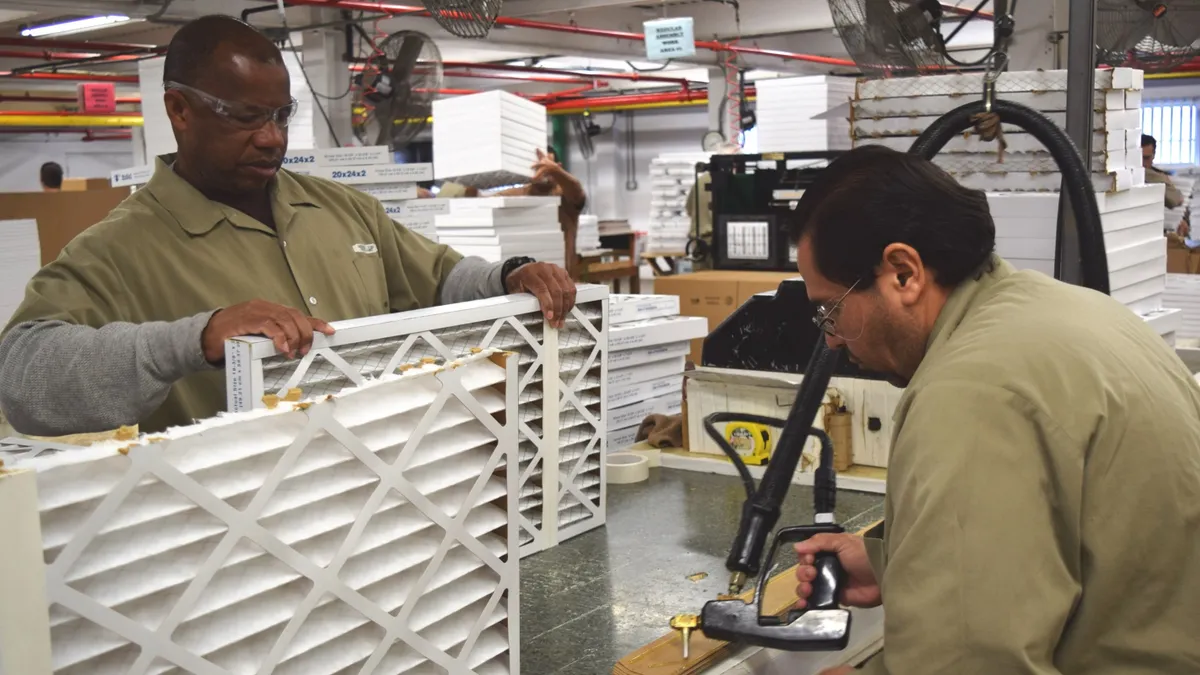For commercial companies in the United States with manufacturing or assembly needs, a four-decades-old initiative could open the door to a new world of collaboration.
That initiative is the Prison Industry Enhancement Certification Program, and it connects companies to a readily available workforce that can provide labor in manufacturing facilities across the country.
The PIE Program, as it’s also known, allows inmates to learn marketable skills, gain valuable work experience, and improve their chances of success after their release.
Congress created the program in 1979 with the goal of motivating state and local governments to establish employment opportunities for people in prison. The program also exempts certified participating companies from the normal restrictions that are usually applied to the sale of inmate-made goods across state lines.
Businesses can tap into PIE Program opportunities by contracting with UNICOR, which is run by Federal Prison Industries, Inc.
Established in 1934, UNICOR manufactures products for government, commercial, and nonprofit customers. UNICOR operates out of modern factories and offers a diverse range of production capabilities and expertise. Entirely self-sufficient, it receives no appropriated funds from Congress and operates at no cost to taxpayers.
By working with UNICOR through programs and initiatives like the PIE Program and First Step Act, eligible companies can find an available workforce in low-cost manufacturing spaces.
“For companies, it really is a win-win,” says Patrick O’Connor, CEO of UNICOR. “They can more competitively produce products and provide services. Meanwhile, people in prison get a valuable opportunity to learn new skills.”
Furthermore, O’Connor says, research has shown that after their release, inmates who have participated in programs like this are 24% less likely to return to crime — and 14% more likely to gain employment.
The collaboration can take shape in several ways, with three potential business structures:
Manpower Model: This is the most common structure. It’s essentially a labor-leasing model, where the private-sector entity oversees production and pays a predetermined fee to UNICOR to cover labor, overhead, and profit. UNICOR pays inmate compensation and benefits.
Customer Model: In this structure, the company is engaged only to the extent that it purchases all of the end product. It assumes no major role in the project and has no responsibility for inmate labor performance.
Employer Model: The company owns and operates the project, including hiring, firing, training, supervising, and paying the inmate workforce. UNICOR assumes no major role in operations and exercises limited control over inmate labor performance.
Companies that contract with UNICOR through the PIE Program must help ensure that these requirements are met:
- Inmates must be paid (subject to allowable deductions) at a rate not less than that paid for similar work in the locality.
- Inmates must receive benefits comparable to those received by private-sector employees, such as overtime and workers’ compensation.
- Companies must provide written certification that no U.S. workers will be displaced as a result of this work.
- UNICOR must notify organized labor and local private industry prior to the startup, comply with requirements of the National Environmental Policy Act, and obtain written assurances from inmates that their participation is voluntary.
The Bureau of Justice Assistance will review all documentation and other requirements before granting approval for the project.
Ultimately, says UNICOR’s O’Connor, when companies work with UNICOR, it’s a win-win-win: Not only does the PIE Program help companies succeed and inmates learn new skills, but with inmates improving their chances of success after release, “communities can ultimately see a difference as well.”
To learn more about opportunities to work with UNICOR, contact UNICOR Business Development at [email protected] or 202-305-3490.










